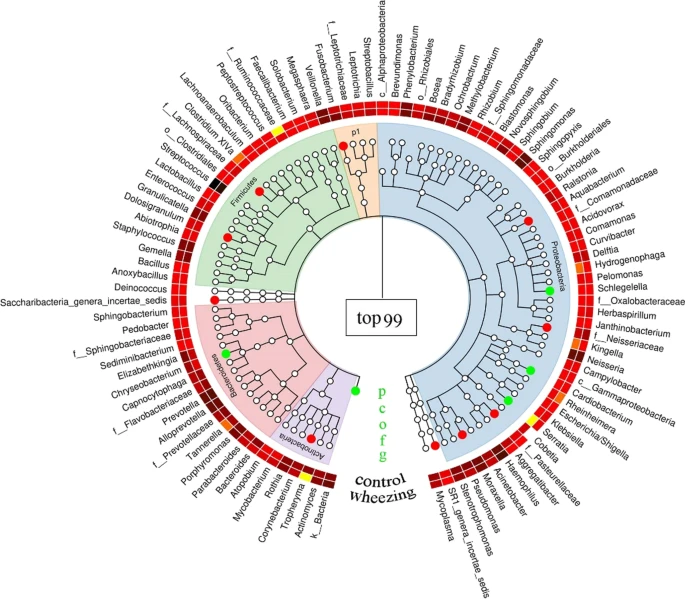- Research
- Open Access
Abstract
Increasing evidence revealed that airway microbial dysbiosis was associated with increased risk of asthma, or persistent wheezing (PW). However, the role of lung microbiota in PW or wheezing recurrence remains poorly understood.
In this prospective observational study, we performed a longitudinal 16S rRNA-based microbiome survey on bronchoalveolar lavage (BAL) samples collected from 35 infants with PW and 28 age-matched infants (control group). A 2-year follow-up study on these PW patients was conducted. The compositions of lower airway microbiota were analyzed at the phylum and genus levels.
Our study showed a clear difference in lower airway microbiota between PW children and the control group. Children with PW had a higher abundance of Elizabethkingia and Rothia, and lower abundance of Fusobacterium compared with the control group. At the end of the 2-year follow-up, 20 children with PW (57.1%) experienced at least one episode of wheezing, and 15 (42.9%) did not suffer from wheezing episodes. Furthermore, PW children with recurrence also had increased abundances of Elizabethkingia and Rothia relative to those who had no recurrence. Additionally, wheezing history, different gender, and caesarean section demonstrated a greater impact in airway microbiota compositions.
This study suggests that the alterations of lower airway microbiota could be strongly associated with the development of wheezing, and early airway microbial changes could also be associated with wheezing recurrence later in life.

No comments:
Post a Comment